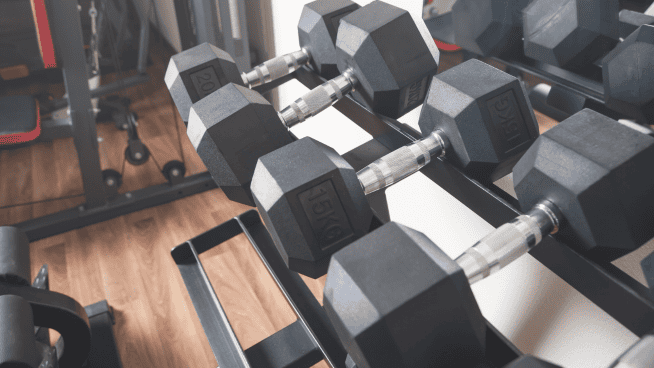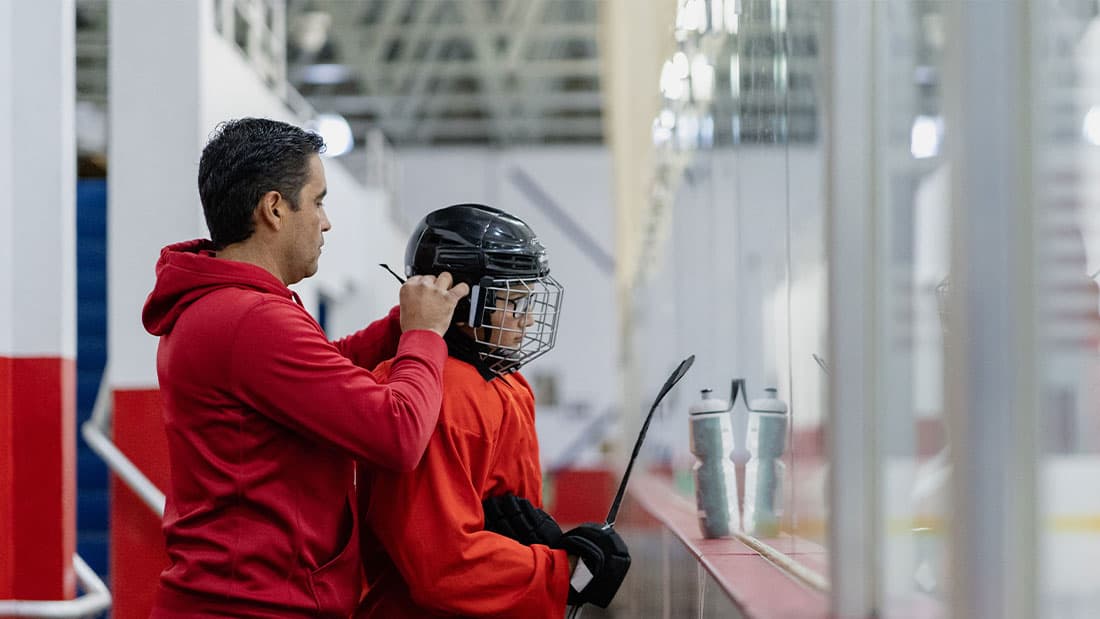The Importance Of Training Age
Most people associate the word ‘age’ with a number that refers to one’s biological maturity or length of time on Earth. As our age increases, so too do our experiences in life and hopefully our wisdom along with it. While this is an elementary number to determine, another type of age exists that’s a bit more complex. The age I’m referring to specifically is what’s known as ‘training age.’
What Is Training Age?
Training age can be thought of as the amount of meaningful experience one has in a particular area of expertise, anything that requires some sort of skill. For this article’s purpose and to reflect on my own experiences, I speak about strength and conditioning or workout training age.
Perhaps the most crucial takeaway to the definition of training age I highlighted is the word meaningful, specifically when discussing the experience. Training age boils down to how many well-executed, consistent, and successful training sessions one has been able to string together over time. Individuals who’ve amassed years of training will display greater movement competency, strength, power, speed, endurance than those who have not. This is because things like strength training are skills that require time to improve from both an execution standpoint and physiological standpoint, much like any other athletic movement.
Why Does Training Age Matter?
Increased biological age does not automatically guarantee increased training age. This is because the only way to improve a skill is by training to improve it. We see this all the time in the gym. An 18-year-old high school football player who’s been training properly with a coach for his entire high school career versus a 35-year-old man who’s only begun training a year prior will have different skills. The 18-year-old will have already accumulated 4 years of training experience over the 35-year-old, who simply have 1. This means that the high schooler is not only four times greater. In terms of his ‘training age’, but by the time he reaches his 35-year-old counterpart, he will have 21 years of training experience! (assuming that he continues to train properly).
While this may seem like a rather irrelevant comparison, imagine a group of college football players who’ve all been training since they were 14 years old versus a group who’s never touched a weight room until they arrived on campus. You can probably conclude who will already have a leg up in one category.
We as humans generally have greater plasticity in our ability to learn new skills when we are adolescents versus at a fully mature age. The implications mean a window of opportunity for a solid foundation to be built in the gym earlier on in life that can better serve us for the rest of our lives. Training from a young biological age doesn’t haven’t to be complicated or dangerous, as I’ve discussed before, and should instead be thought of as laying the groundwork of success for years to come.
Tips To Increase Training Age
Having a firm understanding of what training age is and why it’s important certainly begs the question of how best to increase it. Some simple tips to increase training age are as follows:
Start as soon as possible:
If you are a parent reading this who wants to get your child into training with a quality coach, or you are a high school athlete thinking the same thing, do so as soon as possible. Is it necessary to assess one’s readiness for training by asking things like, am I/is my child mentally ready to begin? Do I have adequate time to commit to training? Is this something I will stick to? If so, jump in!
Consistency:
The training age won’t increase if the commitment level is sporadic. Athletes live busy lives, particularly adolescent ones who have other obligations (school, work, friends, etc.). It’s important to prioritize training and be consistent. Only commit to what is feasible. Young athletes should enjoy training and only do it if they have a desire to do so. Committing to doing too much, too early, is a recipe for disaster. I’d rather see an athlete only train twice a week for their entire career than train five times a week over a couple of years and ultimately burn out.
Quality:
The adage “quality over quantity” reigns true in terms of training. One’s training age won’t increase if low effort, poorly executed sessions are always being done. Aim to improve skill with focus, intent, and the never-ending pursuit of perfection.
Read More
- How To Effectively Motivate Your Athletes
- 6 Rules for Multi-Sport Success
- How Your Child Can Impress Their Coach
RECOMMENDED FOR YOU
MOST POPULAR
The Importance Of Training Age
Most people associate the word ‘age’ with a number that refers to one’s biological maturity or length of time on Earth. As our age increases, so too do our experiences in life and hopefully our wisdom along with it. While this is an elementary number to determine, another type of age exists that’s a bit more complex. The age I’m referring to specifically is what’s known as ‘training age.’
What Is Training Age?
Training age can be thought of as the amount of meaningful experience one has in a particular area of expertise, anything that requires some sort of skill. For this article’s purpose and to reflect on my own experiences, I speak about strength and conditioning or workout training age.
Perhaps the most crucial takeaway to the definition of training age I highlighted is the word meaningful, specifically when discussing the experience. Training age boils down to how many well-executed, consistent, and successful training sessions one has been able to string together over time. Individuals who’ve amassed years of training will display greater movement competency, strength, power, speed, endurance than those who have not. This is because things like strength training are skills that require time to improve from both an execution standpoint and physiological standpoint, much like any other athletic movement.
Why Does Training Age Matter?
Increased biological age does not automatically guarantee increased training age. This is because the only way to improve a skill is by training to improve it. We see this all the time in the gym. An 18-year-old high school football player who’s been training properly with a coach for his entire high school career versus a 35-year-old man who’s only begun training a year prior will have different skills. The 18-year-old will have already accumulated 4 years of training experience over the 35-year-old, who simply have 1. This means that the high schooler is not only four times greater. In terms of his ‘training age’, but by the time he reaches his 35-year-old counterpart, he will have 21 years of training experience! (assuming that he continues to train properly).
While this may seem like a rather irrelevant comparison, imagine a group of college football players who’ve all been training since they were 14 years old versus a group who’s never touched a weight room until they arrived on campus. You can probably conclude who will already have a leg up in one category.
We as humans generally have greater plasticity in our ability to learn new skills when we are adolescents versus at a fully mature age. The implications mean a window of opportunity for a solid foundation to be built in the gym earlier on in life that can better serve us for the rest of our lives. Training from a young biological age doesn’t haven’t to be complicated or dangerous, as I’ve discussed before, and should instead be thought of as laying the groundwork of success for years to come.
Tips To Increase Training Age
Having a firm understanding of what training age is and why it’s important certainly begs the question of how best to increase it. Some simple tips to increase training age are as follows:
Start as soon as possible:
If you are a parent reading this who wants to get your child into training with a quality coach, or you are a high school athlete thinking the same thing, do so as soon as possible. Is it necessary to assess one’s readiness for training by asking things like, am I/is my child mentally ready to begin? Do I have adequate time to commit to training? Is this something I will stick to? If so, jump in!
Consistency:
The training age won’t increase if the commitment level is sporadic. Athletes live busy lives, particularly adolescent ones who have other obligations (school, work, friends, etc.). It’s important to prioritize training and be consistent. Only commit to what is feasible. Young athletes should enjoy training and only do it if they have a desire to do so. Committing to doing too much, too early, is a recipe for disaster. I’d rather see an athlete only train twice a week for their entire career than train five times a week over a couple of years and ultimately burn out.
Quality:
The adage “quality over quantity” reigns true in terms of training. One’s training age won’t increase if low effort, poorly executed sessions are always being done. Aim to improve skill with focus, intent, and the never-ending pursuit of perfection.
Read More
- How To Effectively Motivate Your Athletes
- 6 Rules for Multi-Sport Success
- How Your Child Can Impress Their Coach












